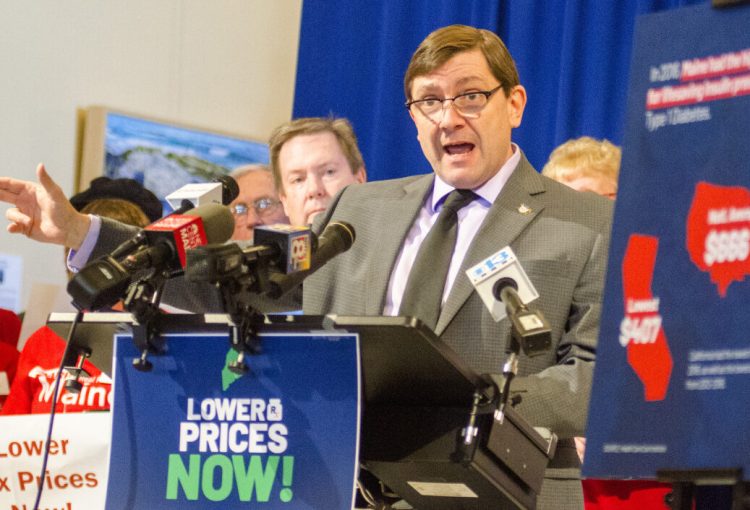There is no cure for Type 1 diabetes. People who have it need to inject themselves with insulin every day or they will die.
And the medicine is not cheap – at least not in America. Over the last 20 years, the price has soared from $20 a vial to $300 or more, doubling in just the last five years. There is no generic version, 90 years after researchers first discovered that animal insulin could treat the disease.
This is just one drug. Americans are paying the top prices in the world for thousands of different medications, many of them as crucial to survival as insulin is to a diabetic. It is good to see that the Maine Legislature plans to take on this issue.
LEGISLATIVE AGENDA
On Tuesday, Democratic leaders rolled out their proposals to protect Maine residents from a distorted market that put life-saving medicine out of reach, even for people with insurance. The legislative package includes:
• A bill to permit Mainers to fill their prescriptions in Canada.
• A proposal to create a Prescription Drug Affordability Board that would, among other things, require manufacturers to justify prices the board deems excessive.
• A measure that would require pharmacy benefit managers to disclose the system of rebates they negotiate with manufacturers.
Each of these bills could have a positive impact on insulin-dependent diabetics who live in Maine.
For instance, the same brand-name life-saving product that costs $300 a vial on this side of the border sells for $32 in Canada, according to a recent report by the Canadian Broadcasting Corp. The difference is not what’s in the vial, but the Canadian health care system, in which the provincial government sets the price it considers fair.
And one of the reasons the price has increased so much in this country is the way that drugs are marketed here. The New England Journal of Medicine looked at insulin pricing last year, and found that as more expensive new drugs came on the market, older but still-effective alternatives disappeared.
The study concluded that the new medicines had the benefit of aggressive marketing to doctors, who prescribed them even when the older versions had been working.
And the effect of pharmacy benefit managers on drug pricing also needs more public oversight. Created in the 1990s to negotiate with drug manufacturers and lower prices for consumers, they have not delivered. Costs have been climbing at historic rates, and even consumers with insurance are rationing their medications because they can’t afford to fill their prescriptions.
NO SIMPLE SOLUTION
Other bills affecting prescription prices are still being drafted. The number of them speaks to the complexity of the problem. None of these bills on its own will make medicine affordable, and the prescription-drug cost problem won’t be solved one state at time.
But Maine’s government can do more than it is doing now to protect its citizens from price gouging.
While this is a national problem that will require a federal solution, we hope the state’s Republicans will reach across the aisle to join with Democrats to do what’s possible now.
Send questions/comments to the editors.



Success. Please wait for the page to reload. If the page does not reload within 5 seconds, please refresh the page.
Enter your email and password to access comments.
Hi, to comment on stories you must . This profile is in addition to your subscription and website login.
Already have a commenting profile? .
Invalid username/password.
Please check your email to confirm and complete your registration.
Only subscribers are eligible to post comments. Please subscribe or login first for digital access. Here’s why.
Use the form below to reset your password. When you've submitted your account email, we will send an email with a reset code.